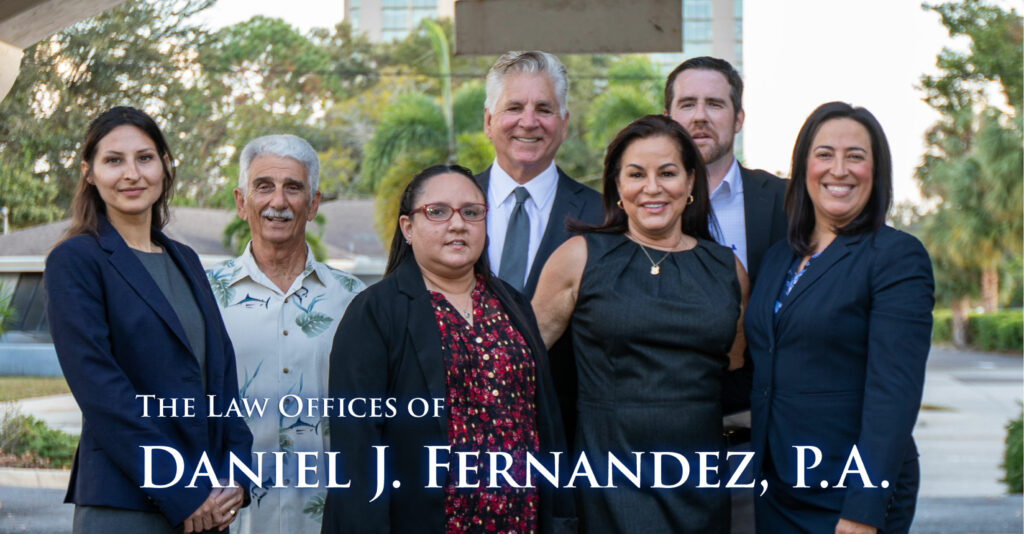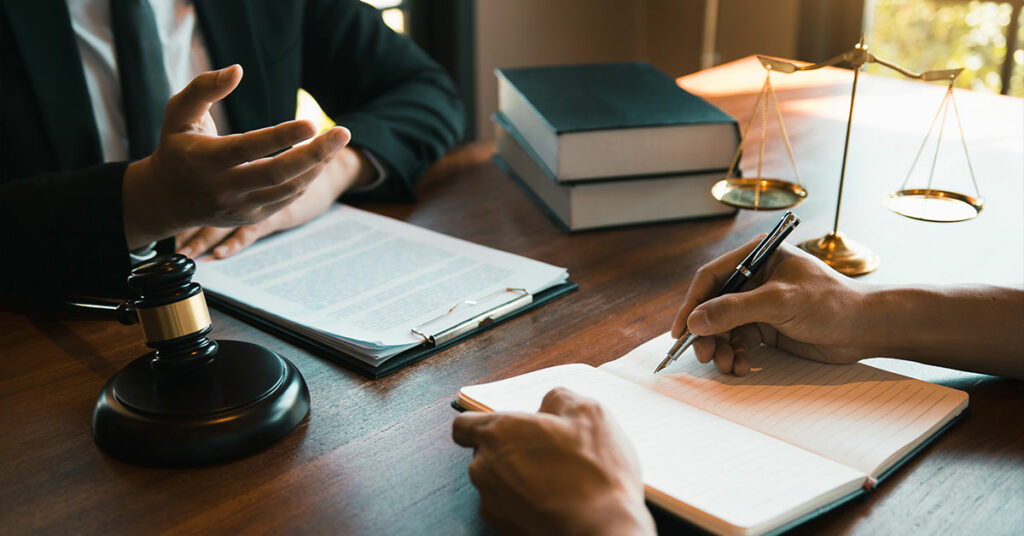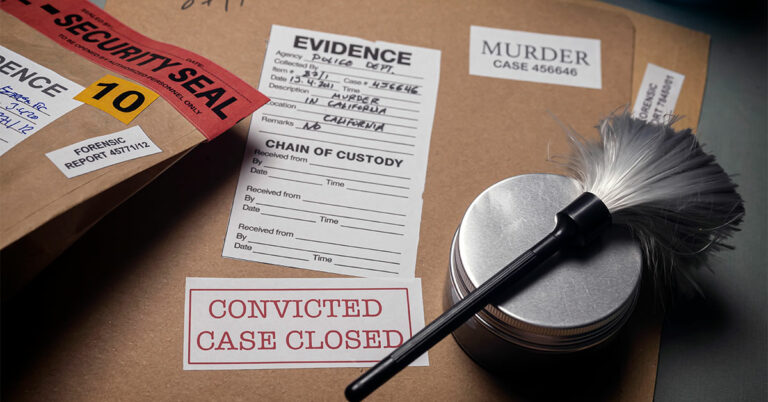Just about every criminal case’s outcome can be very different. However, there are some important standard procedures to know because they occur in most criminal cases.
Some of the process will probably take place in court and some other parts of a case will not. Learning the general stages of a criminal case may make it easier to know what to expect in yours, but keep in mind that an ending point may not always be clear.
Your case could end before, during, or after the trial period. More often than not, criminal cases come to a close from a negotiated resolution rather than from a trial verdict.
Resolving your case is something an experienced criminal attorney can help with. It usually involves trading offers with a prosecutor from the state until a plea bargain is reached.
If you have been accused of a crime or arrested, call us immediately at (813) 229-5353. Or, fill out a case form to get started with your free attorney case consultation.
Here are some stages to know in the criminal court and case process:
Investigation And Arrest
Law enforcement officers may direct an investigation to lead to an arrest. The purpose of investigating is to collect enough evidence to show that there was probable cause to believe that a crime has been committed.
Probable cause is the lowest standard to justify an arrest for a crime. That can lead to some legal issues later on in a case.
For instance, if there is not enough evidence to show there was probable cause for an arrest, then the state’s case may not hold up legally and possibly be dismissed. Get advice from your attorney on the details of case dismissals.
Whenever you are arrested, you must be told about your Miranda rights. You have a Fifth Amendment right to remain silent and a Sixth right to an attorney. These are your constitutional rights and one of them is to speak with an attorney.
You can invoke this right and refuse to answer any questions until a lawyer is with you. Exercising this right can help your case massively, and hiring a criminal defense attorney with a lot of experience could be even better.
After you are arrested, you may be kept in a holding facility for fingerprinting and booking. A lawyer representing you can start preparing even at this early stage to get the best results for your first appearance and bail determination hearing.
Bail Hearing/First Appearance
Within a day or two of your arrest, you will likely go before a judge to determine some legal issues, such as:
- If you should be released on your own recognizance or held in jail
- What amount of bail should be set for your release, if any
- Whether you need a public defender to represent you
At this point, you may already have a private criminal attorney to handle your case for you. If so, your lawyer can explain more details about this stage and also do some of the speaking for you in the courtroom to help your case.
Determining whether bail is set and the dollar amount that must be paid can be complicated. The judge’s decision may depend on several factors including your criminal history, which your lawyer can discuss with you.
Arraignment
An arraignment is a hearing for defendants to face their charges and enter a plea if they would like. Specifically, you are read what crimes you have been charged with by the state, what evidence the prosecutor has for those charges and the state sentence that can result.
In this stage, you have the option to enter a guilty or not guilty plea–which is something you can decide beforehand. If you have an experienced criminal attorney, they can map out a strong legal strategy and advise you on which plea would be the best.
Pre-Trial Motions In Court
You may have to be present in court for preliminary hearings. Pre-trial hearings usually involve the attorneys and the judge deciding how to proceed on legal issues and/or scheduling issues that may come up in your case.
Your attorney should prepare you for each in-person hearing and what may be expected of you. If your case goes to trial, both the defense attorney and the prosecuting attorney may argue pre-trial motions about trial proceedings and certain pieces of evidence and whether they should be presented to the jury when the trial begins.
Negotiations For A Plea Deal
Attorneys and their staff should be able to handle the back-and-forth of negotiating with the State to get you the best possible case result. This can take a lot of weight off of your shoulders because a lawyer can know what outcome would be a fair deal based on your individual situation and yours alone.
If a plea bargain is reached, defendants enter a plea in exchange for certain terms that are agreed upon. For example, a defendant may enter a plea of guilty so that they can be placed on probation with specific conditions to complete.
Defendants who accept a plea bargain with the state can benefit from avoiding trial altogether. Another bonus is that you may be able to plead to lesser charges, get a lighter sentence, and even get related charges dismissed.
There are also diversion programs for certain felonies and misdemeanors that are designed to be completed so that your criminal charges can be dismissed. Not everyone is eligible for these, so speak with your attorney if you would like to know more about diversion as an option.
Keep in mind that these possibilities are never guaranteed in any case. Your options can be unique because they depend on many factors that are often considered altogether.
Also, remember that deals with The State can also carry risks, so you should get advice from a criminal attorney about the possibility of taking a plea deal in your case.
Criminal Attorney Daniel Fernandez can answer your questions about pleas and help you decide what is best for you. Call (813) 229-5353 or send us your case form to get started with your free case consultation.
The Trial Phase And Beyond
When a case gets as far as trial, you as the defendant have a special set of rights that your attorney can help you understand. For instance, they can give you advice on whether to use your right to have a jury trial as opposed to a ‘bench trial’ which goes in front of a judge only.
In any criminal trial, the state’s prosecuting attorney has what is called the burden of proof. This burden means that it is the prosecutor’s job to prove that a defendant is guilty of the crime or crimes charged beyond any reasonable doubt.
The defense does not have any burden of proof. They do not have to prove your innocence–only that there is reasonable evidence to doubt your guilt.
Both sides can show evidence to the court in order to make their cases. Evidence can be presented in the form of physical or visual exhibits, as well as with testimony given by expert and non-expert witnesses talking on the stand.
Depending on how your trial goes, a guilty or not guilty verdict may be entered at the close of it. With a strong enough criminal defense, you could secure a not guilty verdict which means the charges will be dropped.
A guilty verdict usually leads to sentencing. After that point, you may want to appeal the verdict, after considering some important factors.
Our firm offers representation for appeals. With the help of an attorney, you may be able to get a successful result by taking this route, even after a guilty trial verdict.







